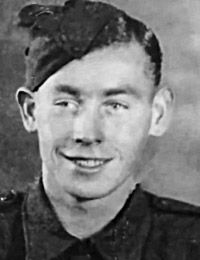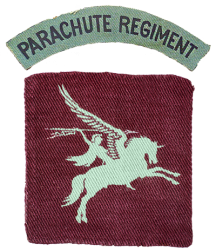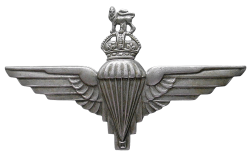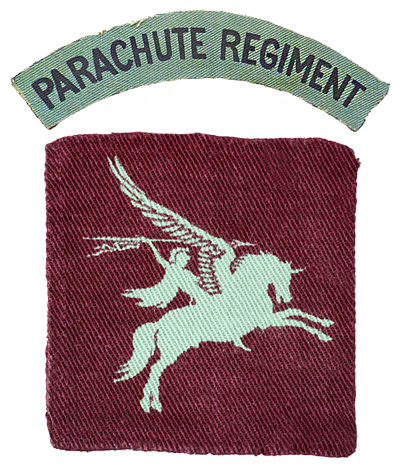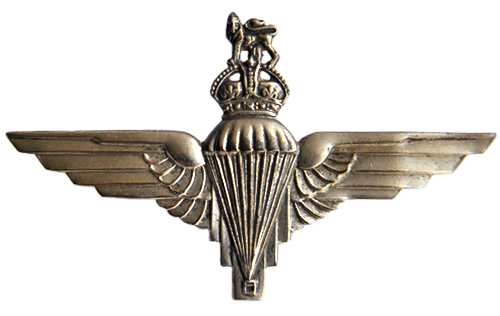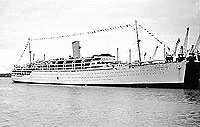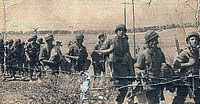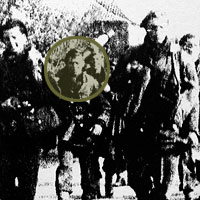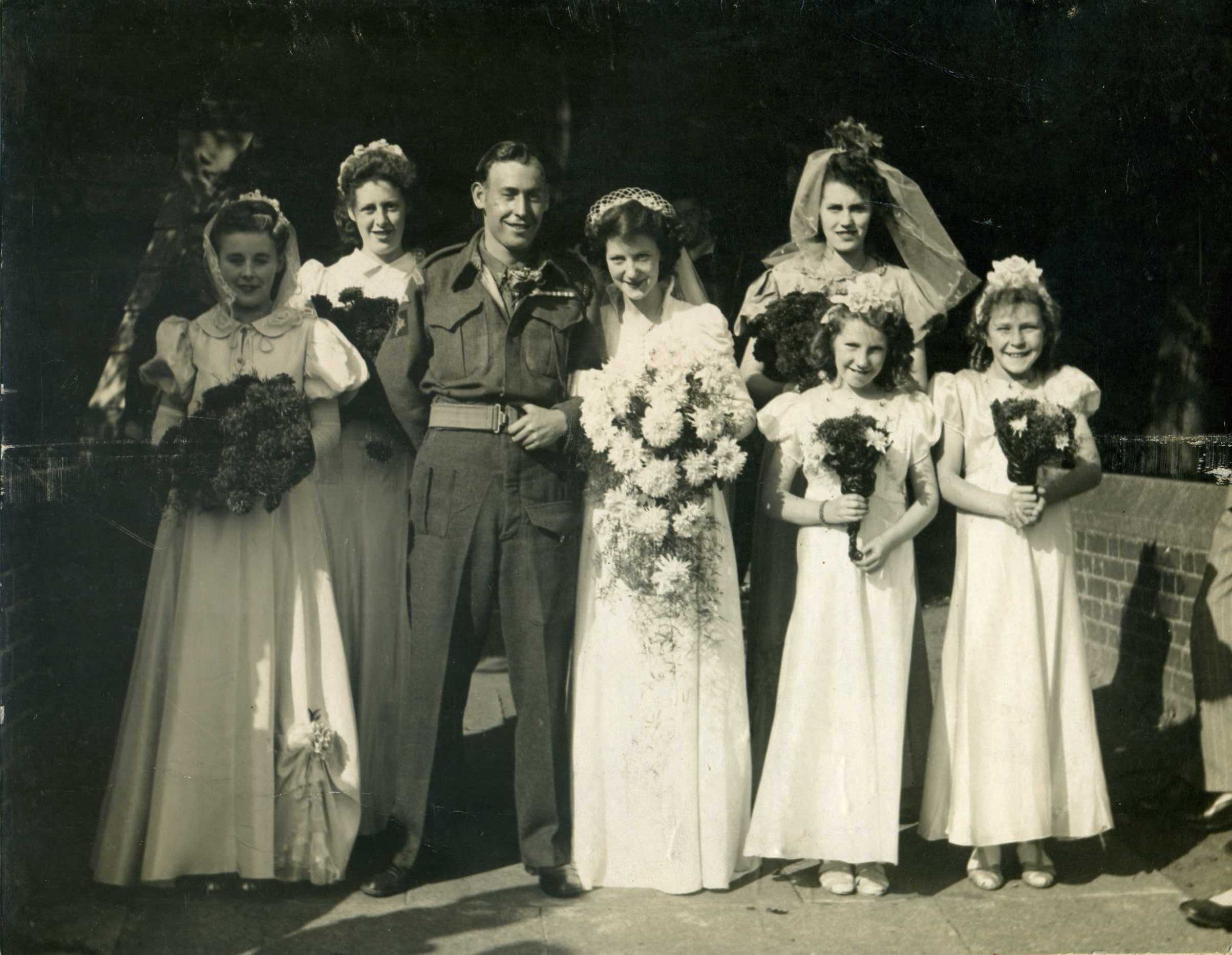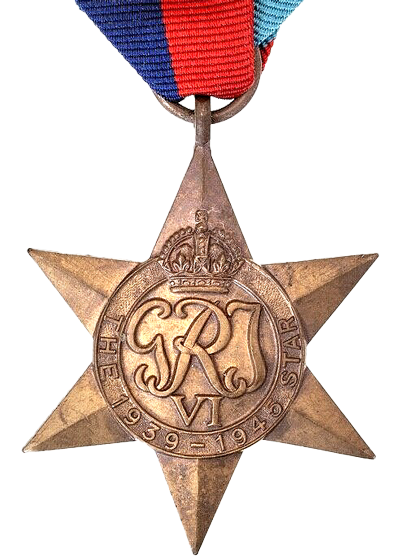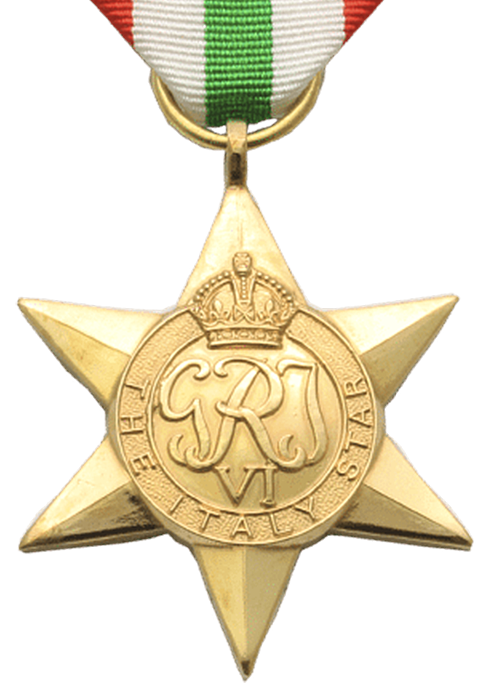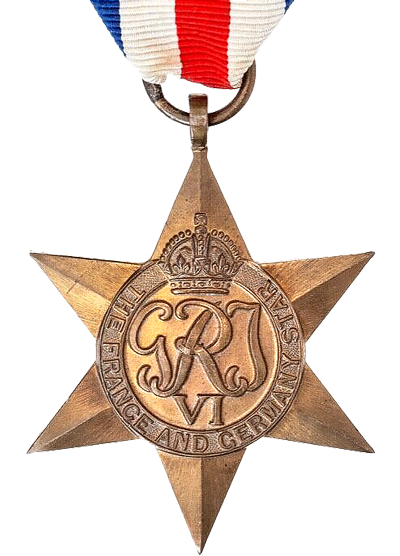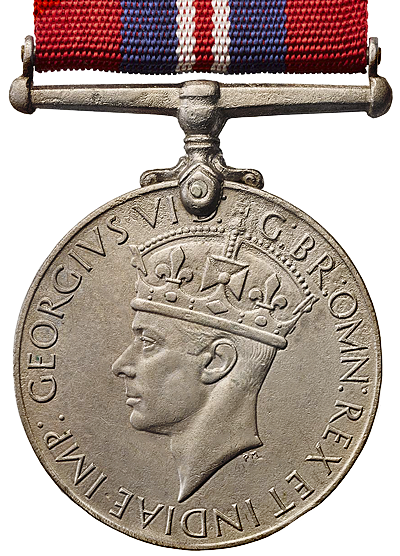My twin brother Philip and I were part of a contingent of Paratroopers who were to reinforce the 2nd Battalion in North Africa. We boarded the already overloaded Strathallan at Greenock and set sail with a large convoy of boats. I remember that the previous day had been hot and humid and we were a couple of days away from landing at our destination. On that evening we were between 80 or 90 miles of Tangiers, our expected landing place.
After midnight we went below to our deck to sleep in our hammocks. It was extremely hot and most of us took all our clothes off in an attempt to keep cool. Somewhere around 2 a.m. many of us fell out of our hammocks as one heavy ‘bump’ and then another rocked the ship mess tins and other equipment was scattered all over the floor and the lights began to dim. Soon we were in complete darkness and began groping for the cabinets containing emergency torches.
Our NCO then ordered us to proceed up the stairs without panic in orderly fashion. We suspected we had been hit by a torpedo and as we were below the water line our living quarters being on what I believe to have been the lowest deck thoughts of what might happen to us raced through our minds. (It later turned out that the Strathallan was hit by the German submarine U562, the torpedo hit the Strathallan at 02:23hrs 21st December 1942 in map grid position CH8171. The Strathallan sank the next day at 04:00 a.m.)
There was no panic and eventually we felt the night air and saw the stars, a most welcome sight. We crawled out on to the deck which now had a considerable degree of list. The Strathallan’s Captain was issuing orders from the bridge to his crew which were relayed to us. Life boats were being lowered and Queen Alexandra nurses began to board them. I also recall rafts going overboard. Some accidents did occur and people fell into the water and unfortunately some of the nurses drowned. Full lifeboats pulled away and I quickly realised there were not enough boats to get us all off.
Meanwhile the listing ship now seemed somewhat isolated as the remainder of the convoy continued its course under the naval escort, however, a corvette returned and attempted to throw a line to the Strathallan to stabilise her. The corvette failed after several attempts and moved off. Later the ship’s captain announced that rescue operations would continue at first light, but in the meantime he ordered everyone to climb to the highest part of the ship to give it some stability. This was done and there we stayed. Later some of us felt confident enough to return to the galley to bring up food and any clothing we could find, humour then began to overcome drama.
Daybreak arrived and the navy was nowhere to be seen. However, towards midday they did appear and rescue operations continued. We were told to be an example to the others and to stand to attention, this we thought was very funny as many of us only had our pants and vest on and many were completely naked. The rescue began but this was not so simple as it involved a jump from high up on the Strathallen down on to the small corvette. Para training stood us in good stead while the crew of HMS Pathfinder assisted by scattering the ship’s decks with cushions, pillows, rubber tyres and other soft materials. Unfortunately there were a few sprains and fractures among some troops. The Pathfinder then zig-zagged a course to Oran.
When we landed we must have looked as if we had been to a fancy dress party. Some men were in ladies dresses, others swathed in blankets or clad with bits of cloth like Zulus. Finally we arrived in Algiers less our equipment and were taken to a transit camp. Re-equipped and re-armed within a few days we were in the front line .
Several Recallections
After surviving the torpedo attack and sinking of their troop ship, the para twins were shortly in action in North Africa. They had been well trained in the art of close combat. Arthur said "I was in this trench with my brother and others and the Germans attacked towards us. I was told to throw a grenade. Remembering what I had been taught, I pulled my arm back and hurled the grenade, unfortunately it hit a tree not too far away from us and we were covered with splinters from the grenade and tree. There was silence and suddenly my brother shouted "Whose side are you on"
It was the policy of the British army not to have brothers serving in the same regiment, let alone the same company. Arthur and Philip Letchford had trained together and somehow kept together. When the army realised they had twins in the same unit they hurriedly sent a message to separate them. While they were in a trench a message came through that they could not fight together in case they were both killed and it would not be fair to their families. They refused to be parted and as they were both under 21 their parents were asked for their opinion. Their mother said "If they want to stay together, let them stay together."
At one time Arthur and Philip were both wounded and sent to a field hospital. Philip was the most seriously wounded having a shrapnel injury to his stomach. Soldiers from both sides were in the hospital, British, German and Italian. Arthur said "You got very observant, you looked very carefully at the uniform of the person in the next bed"
Arthur said at one time (date forgotten) they went from Italy with a load of light ammunition, they were unloaded into flat bottomed boats and went somewhere to the coast of Yugoslavia where partisans were involved in ferocious fighting with the Germans. When they arrived at their designated place, many of the Yugoslavs complained that the ammunition was not heavy enough.
Arthur said "There was this tall man, rather scruffy but good looking with a very good head of hair". He complained that he wanted better ammunition. Arthur, who has a loud voice, said "Tell him we are paratroopers and we always travel light, we are not camels" Tito heard him and laughed.
Arnhem
After fighting in North Africa, Sicily and Italy the 1st Airborne Division was brought home to Britain in preparation for the attack on Europe. The 6th Airborne Division was used in the D-Day assault whilst my Division was held in readiness for action as required; this involved some sixteen (as I recall) plans for operations, but the speed of the Allied advance made all these operations obsolete before being brought to fruition.
However, General Montgomery devised Operation Market Garden to create a dagger thrust at the heart of Germany using the American 82 nd and 101st Airborne Divisions; and the British 1st Airborne Divisions and Polish Brigade. Enough has been written about the disaster of Arnhem to negate the need for me to enlarge upon that debacle, therefore I will only touch upon the battle as it affected me.
The Arnhem Bridge
I was a mortar man situated on a grassy traffic island just to the north of the bridge and my 3” mortar was brought into good use to cause considerable damage to the enemy forces. One of this weapon’s major disadvantages was the weight of the mortar bombs which limited the number which could be carried.
After firing off all the bombs available we removed the mortar’s firing pin to render it inoperable, hid the weapon, and joined the rest of my company in a school yard which was surrounded by a wall. There was no shortage of rifles and Stens discarded by wounded or dead paratroopers, but there was a severe shortage of ammunition. We emptied the pouches of the dead and wounded and thus produced a tiny arsenal with which to drive back the Germans.
For my part, as fast as the Germans were lobbing their potato-masher grenades over the wall, I kept poking my rifle over the top and fired blindly. It must have had some effect as the enemy beat a hasty retreat. This was during the latter stage of the fighting. We were dog tired, filthy, hungry, without medical supplies, and thirsty but still hopeful of being relieved. We were prepared to carry on but the time inevitably came when Col. John Frost realised that without anything left with which to fight we had no option but to surrender.
Capture
One of my first encounters face-to-face with Germans was with the young blackguards of the Hitler Youth who each tried to outdo the other in pushing. beating, and kicking their helpless enemy. Luckily the regular troops saw what was happening and with a few well directed kicks up the backside sent these little thugs packing. To our surprise we next had to remove our boots. It was alleged that they were to be sent to German troops who desperately needed footwear on the Russian front.
With typical Para astuteness we cut off the large pockets from our para’ smocks to make improvised shoes. During the next interrogation we were warned that any escape equipment on our persons would result in severe penalties for the miscreant. In consequence silk maps and compasses were produced in abundance although a few men still tried to keep these items in the hope of using them during future escape attempts.
Imprisonment
I was initially sent to Stalaag 4b and then transferred to Stalaag 11b at Follingbostel which had been formerly used as a Wehrmacht Training School but was now used to house thousands of men of all nationalities. Anyone who experienced this camp will remember with horror the appalling filth and squalor which accompanied the near starvation conditions. I was fortunate (if it can be called that) to be selected to work on the railways repairing tracks destroyed by Allied bombing which was growing ever more fierce by day and night.
0ne of my least pleasant jobs was to release and lower the bodies of young German girls, railway workers, who had been impaled at high level on railway tracks which had been twisted upwards by bombing. This bombing naturally caused great bitterness by the locals against we prisoners and every time we passed under a bridge we were showered from above by all sorts of debris thrown by the charming German housewives whom we could hear hawking in their throats for extra spit to drop on us.
Our brave German guards were also not averse to delivering a quick kick up the bottom whenever they caught us bending. In the end the bombing was so intense that we were required to take cover within an air raid shelter amongst female civilians . These shelters were waist deep in water due to fractured mains and several of the young women were carrying tiny babies. Due to extreme tiredness and fear, these women found they were incapable of holding the infants clear of the freezing water. We forcibly took these babies from them and warmed them inside our clothing next to our bodies. Our action did not earn us any reprieve from the usual stoning and vilification delivered by these self-same women once we came out of the shelter.
Only after my return to England did I learn that my twin brother Philip had been one of the fortunates who had escaped from Arnhem via the Rhine in one of the pontoon boats provided by Canadian Engineers.
Thougths and fears of war
With battle in mindelements of nature have no precedence over men at war
Fought in field, forest, on the street, down alleyways, byways, house or barn
The venues of battle do not give exception to anything or anyone
Fatigue is succeeded with sight of death and fear of it
The cleft between cowardice and heroism is paper thin.
With self preservation hovering above conscience of men,
The tide of battle will ebb and flow in defence and attack
Men will fall, some will die
Acts of courage happen all the time,
A medic will tend the wounded,
The padre will comfort the dying
Officers will lead their men from the front,
Sergeants and corporals will go forward with them.
Excitement does not have a real place in war and the glory is false
Discomfort of sweat and cold, hunger, thirst and fatigue go unnoticed
Perhaps that is because one is too aware of death being nearby and the prominent factor.
Discomfort is temporary, death is for ever.
Arthur Letchford
